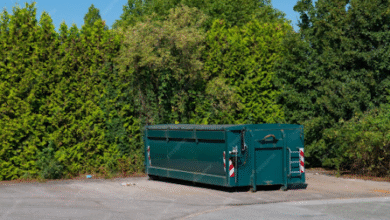Understanding NSF Certifications in Water Filtration Systems: What Every Homeowner Should Know
If you’ve ever shopped for a water purifier online or considered installing a house water purifier system, you’ve probably seen products boasting NSF certifications. But what exactly does that mean, and why should you care?
Let’s break down the mystery of NSF certifications and why they’re essential when choosing a reliable water purification system.
What is NSF?
NSF stands for National Sanitation Foundation, a global organization that develops public health standards and certification programs to protect the world’s food, water, and environment. NSF is independent and accredited, meaning its stamp of approval isn’t bought, it’s earned through rigorous testing and transparent standards.
In the water filtration world, an NSF certification signals that a product does exactly what it claims. Whether it’s removing lead, chlorine, bacteria, or volatile organic compounds (VOCs), an NSF-certified water purifier has passed third-party testing to prove it.
NSF Standards You Should Know
When choosing a house water purifier system or a point-of-use filter, look for these key NSF standards:
- NSF/ANSI 42 – Covers aesthetic effects like taste, odor, and chlorine reduction.
- NSF/ANSI 53 – Targets health-related contaminants such as lead, cysts, and asbestos.
- NSF/ANSI 58 – Applies to reverse osmosis systems, covering arsenic, fluoride, and nitrates.
- NSF/ANSI 401 – Focuses on emerging contaminants like pharmaceuticals and pesticides.
- NSF/ANSI 44 – Relevant for water softeners, especially useful in areas with hard water.
Each standard addresses different water quality issues. The best systems, whether you buy a water purifier online or from a retail store, are certified under multiple standards to offer a wide range of protection.
Why NSF Certification Matters for Whole Home Systems
When investing in a house water purifier system, you’re safeguarding more than just your drinking water. Every tap in your home, from the kitchen to the bathroom, is affected.
That means:
- You’re bathing and cooking in cleaner water.
- Your appliances last longer due to reduced mineral buildup.
- You minimize exposure to chemicals like chlorine, which can dry out skin and damage hair.
Without NSF certification, there’s no guarantee your system actually removes the contaminants it claims to. It’s like buying a car without crash test ratings, risky and unnecessary.
How to Check for NSF Certification
It’s easy to be misled by vague marketing language like “tested to NSF standards.” That doesn’t mean the product is certified, just that the manufacturer may have done its own testing.
To be sure:
- Look for the NSF logo on the product or packaging.
- Visit the official NSF website and search for the product to verify its certification.
- Check which specific NSF/ANSI standards the product complies with.
This small step ensures your water purifier online purchase or in-store investment is both safe and effective.
Conclusion
Clean water isn’t a luxury, it’s a necessity. Whether you’re using a countertop unit or a whole house water purifier system, NSF certification is your guarantee of real performance. It removes the guesswork and gives you peace of mind that your water is truly safe.
So the next time you’re evaluating systems, don’t just compare price or appearance. Flip the box, check the badge, and make sure your system is NSF-certified to handle the specific contaminants in your home’s water supply.




